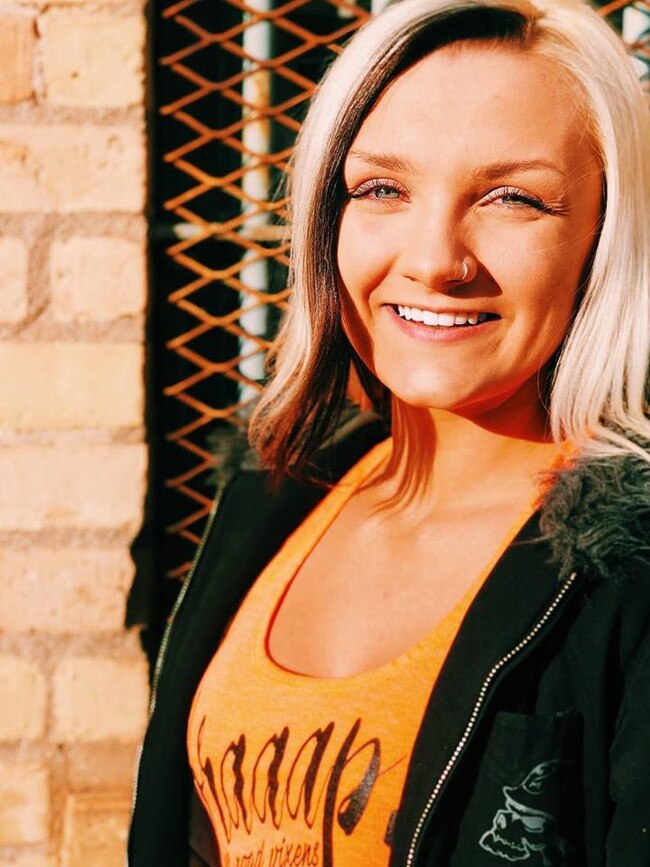Vaping debate: Use of e-cigarettes under investigation in US as Australia lobbies for law changes
People have reported vomiting, fever, fatigue and collapsed lungs over this new trend. There’s a key reason it’s proving so dangerous.
It’s been hailed as a safer alternative to help people quit smoking but alarming cases of serious complications caused by vaping has sparked concern over its use.
Young people have made headlines around the world in recent weeks sharing their shocking reactions to vape use, with at least one death reported in the US.
In the US an 18-year-old student told of how vaping nearly killed him after his lung collapsed and he was rushed to hospital for emergency surgery.
Chance Ammirata said he would vape one mint Juul pod every couple of days — the same amount of nicotine as if he had smoked 10 cigarettes a day.
In the US, 18-year-old Maddie Nelson’s vaping habit led to a high fever, intense kidney pain and breathing struggles before she was put in an induced coma.
Her case comes just weeks after eight teenagers were hospitalised with severe lung damage in the US after inhaling THC via an e-cigarette.
The teens arrived at the Children’s Hospital of Wisconsin with extreme coughing, difficulty breathing, chest pain, fatigue and weight loss.
In total 215 possible cases have been reported from 25 states in the US, and additional reports of pulmonary illness are under investigation.
Last week the Centers for Disease Control and Prevention and US Food and Drug Administration said they were working tirelessly to investigate the “distressing” incidents of severe respiratory disease associated with use of e-cigarette products.
“We are working closely with state and local health officials to investigate these incidents as quickly as possible, and we are committed to taking appropriate actions as a clearer picture of the facts emerges,” the organisations said.


The commercial sale of liquid nicotine is banned in Australia and can only be obtained with a doctor’s prescription.
Health Minister Greg Hunt has made it clear the Australian Government is opposed to changing Australia’s e-cigarette laws, despite pushes from lobby groups advocating their use.
Vaping advocates say reports from the US have been misleading because people are using a vaporiser to administer other drugs.
“The implication has always been that vaping nicotine damages the lungs,” University of New South Wales tobacco treatment specialist Colin Mendelsohn said.
“However, this has nothing to do with vaping nicotine to quit smoking. Vaping nicotine has been widespread for over 10 years and it has never been linked to any serious respiratory harm.
“Suddenly there is an outbreak of clusters of a serious lung disease in the US but no other country. In every case so far where a product has been identified, the culprit was THC (cannabis) oil purchased on the black market.”
Associate Professor Mendelsohn said there had not been a single confirmed report of commercial nicotine vaping liquid causing any of the cases.
“The most important factor is not that the victims were vaping, but rather what they were vaping,” he said.
“People are confusing these problems with nicotine vaping — for example comments by the Cancer Council have deliberately conflated the two.”
Associate Professor Mendelsohn said he agreed with advice for smokers from Public Health England that “e-cigarettes are a fraction of the risk of smoking and smokers should switch completely”.
Public Health England advises it’s important to use UK regulated liquids and never risk vaping homemade or illicit liquids or adding substances, which could be harmful.
“All cases in the US are in states or counties where recreational cannabis is banned, forcing users to purchase illicit products with tragic consequences,” Associate Professor Mendelsohn said.
“This confirms that bans don’t protect people — they only force them into the black market, which has no oversight and no precautions against tainted products.”

Brian Marlow, of Legalise Vaping Australia, agreed the issue in the US was due to a lack of appropriate regulation on vapes.
“Health bureaucrats are deliberately confusing the issue to suggest that nicotine vaping is responsible when in the majority of cases the products being vaped don’t meet any sort of consumer standards one should expect,” he said.
“If the anti-vaping campaigners in Australia were legitimately interested in preventing these sorts of health issues and underage access issues from arising in Australia, then they would support a proper regulatory framework that applies basic consumer standards and consumer protections to vapes.
“But they won’t, because in order to do that we need to actually legalise vaping.”
But the Cancer Council remains staunch in its position, with chief executive Professor Sanchia Aranda saying there were clear indications that e-cigarettes caused serious harm to young people.
“As the evidence against e-cigarettes mounts, the industry appears to be lobbying governments more aggressively to push its products,” she said.
“It’s an old industry tactic, to confuse opinion with evidence and infiltrate the halls of power.”
Following pressure from Coalition MPs late last year, Mr Hunt ordered an independent inquiry into the use of nicotine e-cigarettes.
The first report is expected to be delivered by the end of the month.
Do you think Australia should legalise nicotine vaping? Share your thoughts in the comments below.
Originally published as Vaping debate: Use of e-cigarettes under investigation in US as Australia lobbies for law changes

